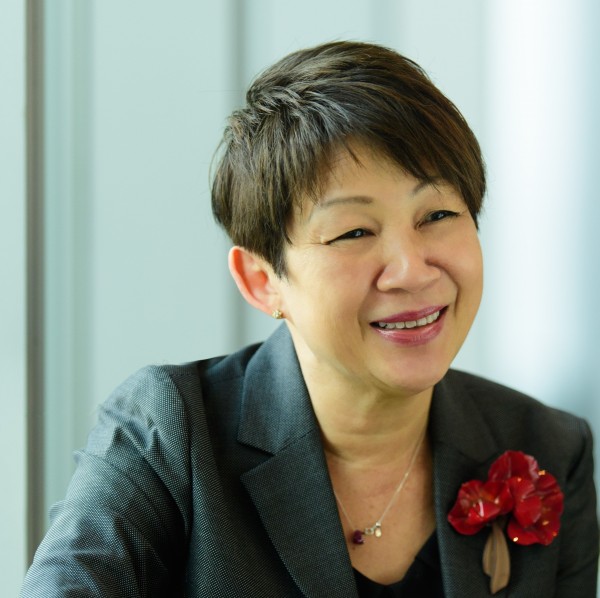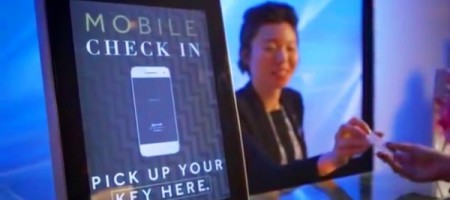As digital technology conspicuously makes its way into the marketing and promotional strategies of the hospitality industry, more and more hotels are beginning to look at cost-efficient strategies to drive business. Amidst various avenues that offer greater product visibility and customer reach, Worldhotels, a global sales, marketing and distribution company, is taking the game one notch higher by not just providing hoteliers a sales platform, but also giving their marketing efforts a boost through their technology and long-standing expertise.
We spoke to Christina Spykerman, Executive Vice President at Worldhotels, about how they are helping independent hotels reach the world, without losing their unique flavour.
Tell us something about the company’s history.
We’ve been around for 47 years, essentially half a century. I think if you look at the basis of the birth of our company, it came from one man’s vision of wanting to maintain the unique flavour and the independence of a singular hotel, a small group hotel against the big brands. We were actually born out of necessity, and we head back to the days of Steigenberger. If you’ve heard of the famous German brand Steigenberger Hotels & Resorts, an international brand hotel opened directly across his landmark Steigenberger and in order to actually give himself a platform to compete, the Steigenberger family put together a number of independent hotels, to actually come together and formulate a strategy so that they could actually play in that same competitive field, and not lose their appeal and business.
We were recently acquired, in February this year, by Associated Luxury Hotels. They have also been in this business for a long time, more than 30 years, but their focus is on the MICE business. When they looked at us, they felt we were a perfect complement to what they offer because they didn’t have corporate sales, they didn’t have leisure sales.
What we offer for independent hotels costs a lot of money otherwise. You cannot afford to miss an opportunity just because you don’t have deep pockets like an international brand. That’s where we come in, for instance offering GDS codes, for what we feel would be an extremely competitive price offering. If you want to go into partnerships, not every partner wants to work with an individual hotel. Moreover, a grouping of hotels gives you economies of scale and it’s also much easier to have one central point of contact. So, with that, we offer a lot of benefits, not only from the sales front, but also from the marketing aspect. We’ve kept a booking engine for them, so it allows their inventory to be distributed right across and for them to be easily booked on the online platforms. At the same time we have a team of experienced, savvy sales professionals, who are also assisting them with the corporate business and a group of marketing professionals who help you ensure that your message is out there.
So, your marketing efforts supplement the independent hotelier’s marketing efforts?
Yes, sometimes, for independent hotels, their marketing efforts may be more restrictive because you don’t have that much money to put into so many things. Whereas on our part, we have different offices, we also have different PR companies in different regions – we are able to reach a wider audience. Our sales offices have their own touch points with their clients so, we know how to match you with the correct kind of client.
About two years ago, we embarked on a program called ‘Start with Why’. If you’ve ever read this book ‘Start with Why’ by Simon Sinek, it actually asked businesses to stop where they’re at, and stop doing what the norm is. He engineered the whole concept of reverse thinking where you should stop and focus on what is the guest experience you wish to deliver and then you work out all processes in line to ensure it is delivered. That’s what we’ve been doing and we have invested a lot in the one-day workshops. A lot of our hotels have attested to the fact that this has produced a lot of positive feedback. Many of them have seen a significant change in the way their staff approach the guests, and also approach any potential issues they may have. They find that their TripAdvisor ratings have gone up. The staff also take on a lot more personal responsibility in wanting to deliver that experience. We already have more than 120 hotels do this program with us and we are now moving into the second stage of this initiative.
Are these workshops single-focused workshops for all the hotels?
It is individual; each hotel derives their own blueprint. The team itself derives the basis of who they are, what they are all about and what is it that they want to deliver to clients. When it comes from them, they show more commitment to the whole strategy, compared to someone telling you what to do. This is something we’ve found has picked up momentum and we have requests for going into the next stage – training your WHY ambassador.
Do the independent hotels come directly to you? For instance, there has been a huge debate about whether to go directly to hotels or use an OTA. How do you tackle such kind of challenges?
First of all this is an issue that every hotel is facing. We do have partnerships with OTAs; I think that is unavoidable. But for all our hotels, every hotel actually has a dedicated account manager, helping them review their rate strategies, and what is performing in terms of your business segments, where can you actually drive better business and greater revenues. At the same time, for us, we look at all aspects of the business. If for example, a hotel is too heavily weighed on OTAs, we will review with the hotel – is there any other way that you can lower your dependency? You do not need to cut them out completely but is there a better balance where you can get a higher paying business segment coming in to you, while still maintaining sustainable levels of OTA business? If you put all your eggs in one basket, it’s very dangerous so we help you optimize your business and make sure you are able to maximize the revenue of every channel available to you.
We also realize that it’s not easy to go into the digital world and there are different levels for different markets. We have a strategy here called World Online and we have subject matter specialists, the digital account managers, who focus on your online business, reviewing it, and checking whether you are optimizing certain aspects of your website, where are you investing your dollars in the online space, where else can you actually look at doing your business that might get you better returns, and more.
Are the digital account managers from the representative hotels?
No, we appoint them on our own, and they work with the hotels and the e-commerce team at the hotel level, as well as the revenue people to ensure they are doing the correct analysis and audits.
The appointment of the digital manager would also be as per choice of the hotel?
No, the hotel does not choose who will be their digital account manager. We have one for Americas, one for EMEA and one for APAC, since we look at time differences. When people are doing things on digital, they are not going to wait because you are in a different time zone. You also need people who are savvy, not just on the technical front, but who are knowledgeable about the market. That is why we’ve got them within the regions in itself.
One Digital account manager will be working with multiple hotels?
Yes.
Is there a close collaboration between the representative from Worldhotels and independent hotel? A lot of hotels have people within their team or a digital agency to take care of this.
I think we enhance it even further because sometimes at the hotel level you may have someone who is very savvy, but because ours takes on a much wider scope from a regional, global kind of base, they also bring greater value to the whole proposition.
Is facilitation for booking a standard integration with your partner hotels or does it vary case to case? Because some of the hotels might have their own booking engines.
Yes, but almost all our hotels use our booking engines because our affiliation fees covers a number of aspects; not just the sales and the marketing aspects but also distribution. When a hotel actually comes on board with us, there is a whole entire process where we integrate everything. Even throughout the entire membership phase you are with us, you always have access to us. There are regular audits and webinars conducted as well.
We do constant and regular training in our ‘Academy’ and there are also updates and upgrades. We also assist the hotels in helping them retain staff because some staff are constantly looking for new learning. You need to invest in your people so this is where we offer those additional services which give a lot of value.
Do you also help independent hotels find unique partners?
We have a number of existing relationships, so we do have the consortium partnerships where there is American Express, Carlson Rezidor etc. We also have the frequent flyer partnerships. So all these are partnership deals that have been done by Worldhotels, which the affiliate hotels can take advantage of. We also work with a number of other partners so our hotels are able to benefit from a greater level of discount that we have negotiated as a partnership privilege. In our annual conference, we bring our hotels and partners together, so they have the opportunity to meet each other, network, or even work together.
How do hotels qualify for this program?
We have a dedicated department, hotel development, that looks into any request that we have, besides us actively looking for hotels to fulfill inventory in a particular city. We are quite strict about our criteria – to qualify for this, they have to meet a certain number of standards, we rate them on close to 1,000 points before we consider them. We are respectful of our hotels, so we ensure we don’t cannibalize business within a specific territory.
Do you have competing hotels on your portfolio?
I believe we don’t quite have that. Firstly, the hotel must be a good fit for our portfolio, and we must drive value to the hotels. We don’t want short-term relationships where we take you on but don’t deliver to you. At the end of the day, we want our hotels to be happy and we should be able to deliver on our promise.
Which is your biggest market in Asia?
If you look at groupings, the largest group would be in China, followed by Australia. Japan is there as well, but spread over different cities.
One burning problem that hotels would like to rectify and you can help them with?
They all want reach, the right target audience at the right price. That is where we come in. If you are on your own, you can’t be everywhere for everybody. But we have 30 sales offices. We are where you can’t be.
One trend that will potentially disrupt the hotel industry?
It has got to be digital. At the end of the day, people will move to what is the more efficient platform. Then how do you figure what is the right one for you? You talk about chat bot and AI and in some markets some people are open to it, but not everywhere. For us it is to help our hotels make sense of what is there in the market, focus on what potentially can deliver most to them at that point in time, and also prepare them for what is actually coming in the future, because it is our business.




















